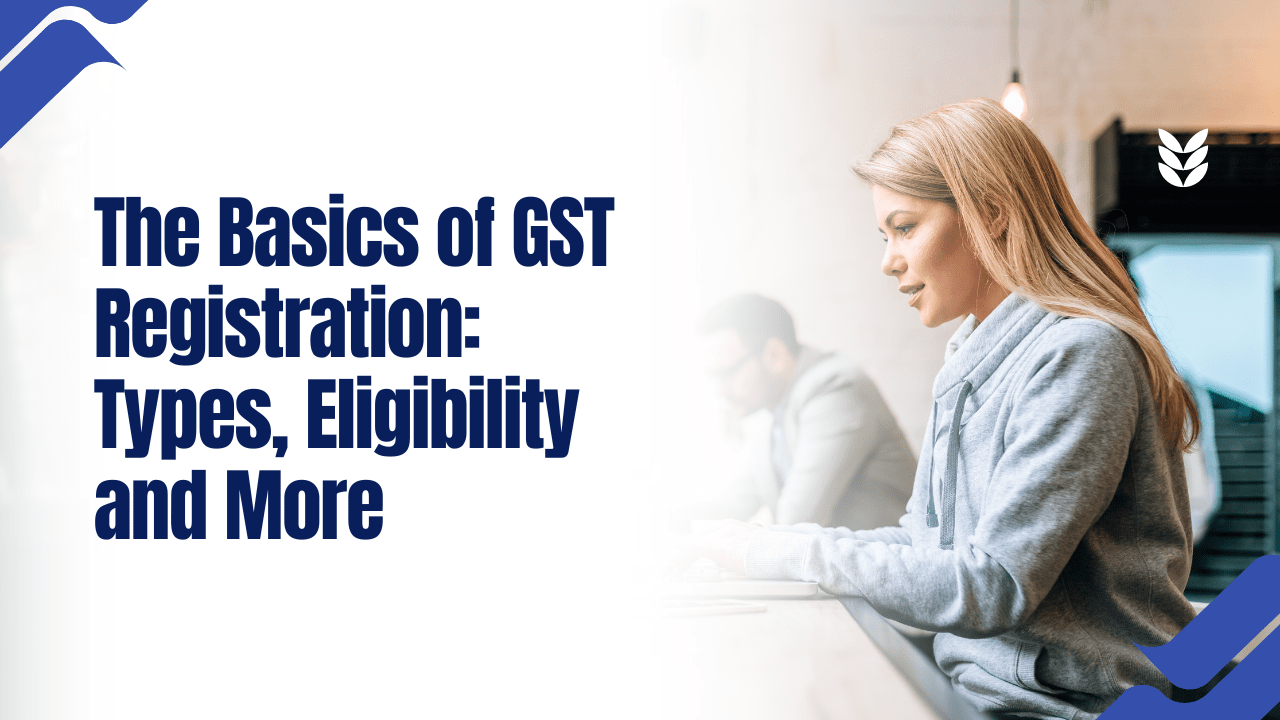Consistency and the courage to take risks are the most crucial elements for running a successful business. Right from marketing, sales to HR plays a significant role in a business success. However, amid all these important elements of running a retail business, taxation is one crucial element every business owner must have knowledge about.
When it comes to taxation, GST prevails in the retail segment and in this blog, we will address the basics of GST and how you can register yourself for a GST number.
GST Registration: Why is Required and What are its Types?
Since 2017, it is mandatory for all the businesses operating within India and which have their aggregate annual PAN based turnover of more than INR 40 lakhs to have a GST number.
However, for several cases based on the type of businesses and also their region of operation, this threshold may be INR 20 lakhs or even INR 10 lakhs.
GST registration is mandatory for any individual or business who meet or in simple words fulfill certain criterias. These criterias are listed below for your better understanding.
Complying with taxation laws: One of the basic criteria why businesses collect GST is because the government has made a law. It is as simple as that. This collected tax amount will only be remitted to the Indian government, all the business to comply with taxation laws.
Input Tax Credit (ITC): Businesses registered under GST can claim ITC, which allows them to offset the GST paid on purchases (input tax) against the GST collected on sales (output tax). This prevents double taxation and reduces the overall tax burden for both businesses and consumers.
It gets a business legally recognised: Another reason why GST registration matters is because it offers legal recognition to a business supplier of goods or services, enhancing its overall credibility in the market. Plus, it also helps in interstate trade or e-commerce activities.
Helps in avoiding penalties: Every registered business is supposed to comply with GST regulations, file their respective tax returns and maintain proper accounting records. Non-adherence to these registration policies and rules will directly lead to penalties that as a business you are likely to avoid.
Expansion of business operations: For any business it is natural to want to expand, generate more profits. To do that just about any business will have to engage in inter-city and inter-state trade activities. Doing this, will allow the business to sell goods and services PAN India – the only way to put full throttle on expansion.
Types of GST Registration
Following are the types of GST registration, which, depending on the nature of one’s business, may change. Take a look!
Normal/regular taxpayer registration
Businesses with a turnover exceeding the government-mandated threshold must register for regular GST. This requires them to collect GST on their sales of goods or services and file regular GST returns. In exchange, they become eligible to claim input tax credits, reducing their overall tax burden.
Casual taxable person registration
Individuals or entities engaged in occasional or seasonal businesses can register for composition GST. This involves paying a fixed deposit equivalent to the estimated GST liability for the business duration. The initial registration period is three months, but businesses can apply for extensions or cancellations as needed.
Non-resident taxable person registration
This is for taxpayers who are NRIs however, supply goods or render their services to the individuals inside India. Any business that falls under this category must apply under the non-resident taxable person type during the registration process.
Composition scheme registration
Small businesses with turnover below the prescribed threshold can opt for the composition scheme. This scheme offers lower tax rates but does not allow for input tax credits. Businesses under the composition scheme pay a fixed percentage of their turnover as tax and have simplified compliance requirements compared to regular GST taxpayers.
What are the documents required for GST registration?
Following are the important documents required for GST registration.
- PAN card/details of the individual or business
- A valid email address
- A valid mobile number
- Proof of the constitution of the business
- Proof of promoters and respective partners
- Proof of primary place of business
- Details of the authorised signatories, including photographs
- Details of the primary authorised signatory
- Business bank account details
- Valid Class II or Class III DSC of authorised signatory for companies and LLPs; valid Class II or Class III DSC or Aadhaar (for e-sign option) for other entities.
What is the eligibility for GST registration?
THere is the GST registration eligibility criteria.
- Pre-GST Taxpayers: Individuals already registered under the previous tax regime.
- Non-Residents and Casual Taxpayers: Individuals engaged in occasional or short-term business activities in India.
- Reverse Charge Mechanism: Entities responsible for paying GST on behalf of suppliers.
- E-commerce Aggregators: Online marketplaces facilitating the sale of goods and services.
- Businesses Exceeding Turnover Thresholds: Businesses with annual turnover exceeding Rs. 40 lakh (or Rs. 10 lakh in specified states).
- Input Service Distributors and Agents: Entities acting as intermediaries in the supply of services.
- E-commerce Sellers: Individuals selling goods through e-commerce platforms.
- Online Information Providers: Businesses offering database access or online information to Indian residents from abroad.
- Businesses with Annual Turnover Exceeding Rs. 20 Lakhs: Businesses reaching this turnover threshold must register for GST.
In a nutshell
Understanding the intricacies of GST registration is crucial for businesses operating in India. By familiarising yourself with different types of GST registration, determining your eligibility criteria and complying with the necessary procedures, you can ensure seamless integration into the GST system. Remember, seeking expert guidance from a tax professional can be invaluable in navigating the complexities of GST registration and ensuring compliance with the ever-evolving regulations. By understanding the basics of GST registration, you can position your business for success in the Indian market.
Frequently Asked Questions About GST
The GST rates applicable in India are 0%, 5%, 12%, 18%, and 28%.
Here’s how the GST is calculated. GST Amount = (Selling Price x GST Rate) / 100.
Gold attracts 3% GST rates.


